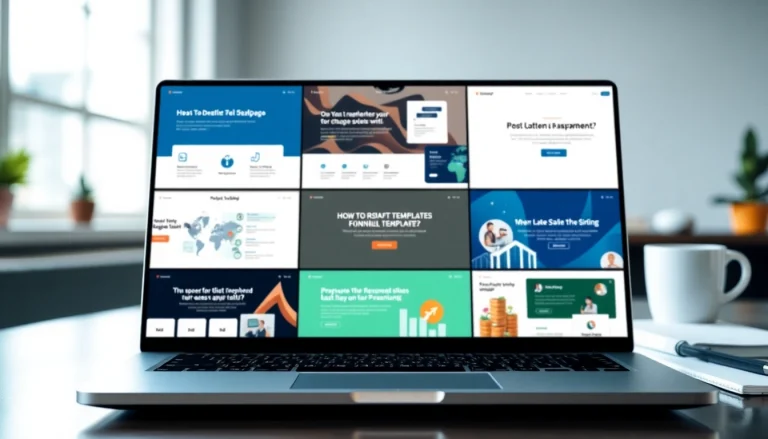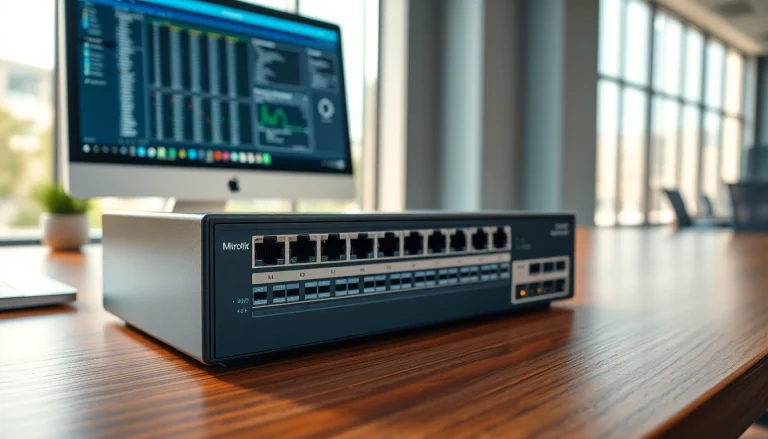
Introduction to AI Outreach Agents
The modern sales landscape is swiftly evolving, driven by technological advancements and changing consumer behaviors. Central to this evolution is the rise of AI outreach agents, tools that automate essential sales tasks and streamline processes. These intelligent systems perform repetitive actions that once consumed considerable time and effort, enabling sales teams to refocus their strategies on building relationships and closing deals. As businesses increasingly prioritize efficiency and productivity, understanding what AI outreach agents are and how they can transform sales operations is crucial.
What Are AI Outreach Agents?
AI outreach agents are specialized software solutions that leverage artificial intelligence to execute a variety of tasks traditionally performed by sales representatives. Their primary function includes automating repetitive tasks such as email follow-ups, data entry, and scheduling, ultimately freeing up sales personnel to focus on high-value activities. As noted by industry leaders, these agents are essential for automating processes that take away from a sales rep’s ability to establish customer relationships and drive sales.
The Role of AI in Modern Sales
In the realm of sales, AI technologies are transforming how organizations engage with prospects and customers. By analyzing vast datasets, AI outreach agents can identify trends, optimize outreach strategies, and enhance personalization. The role of AI in sales extends beyond basic automation: it can drive analytics and insights that inform more effective sales strategies. Companies utilizing AI in their sales process report improved efficiency and higher conversion rates.
Benefits of Using AI Outreach Agents
The implementation of AI outreach agents presents numerous benefits for organizations seeking to enhance their sales operations:
- Increased Efficiency: By automating mundane tasks, sales teams can dedicate more time to engaging with prospects.
- Enhanced Data Insights: AI systems provide actionable insights based on data analysis, informing better decision-making.
- Scalability: AI tools can manage large volumes of outreach without a proportional increase in resources.
- Consistency in Communication: Automated outreach ensures that communications are timely and consistent across all channels.
How AI Outreach Agents Work
Automation of Repetitive Tasks
The primary feature of AI outreach agents is their ability to automate repetitive tasks that consume valuable time and resources. Tasks such as:
- Data Entry: Automatically pulling data from various sources to populate CRM systems.
- Email Follow-Ups: Sending scheduled follow-up emails to leads without human intervention.
- Meeting Scheduling: Integrating with calendars to schedule meetings based on mutual availability.
This automation not only speeds up the sales process but significantly reduces the chance of human error, leading to improved outcomes.
Data-Driven Decision Making
Data analytics capabilities embedded in AI outreach agents enable sales teams to make informed decisions. By analyzing interactions, customer behaviors, and market trends, these tools help sales professionals tailor their approaches based on data:
- Lead Scoring: AI systems can evaluate leads based on engagement and potential conversion likelihood, allowing teams to prioritize their efforts effectively.
- Sales Forecasting: Utilizing historical data, AI can predict future sales trends, enabling better resource allocation.
- Performance Metrics: Providing insights into what strategies are working and what areas require enhancement.
Integration with Existing Workflows
For AI outreach agents to be effective, seamless integration with existing sales tools and workflows is essential. Modern outreach agents can work within widely used CRM platforms, email clients, and other communication tools, ensuring that their capabilities align with current operations. This compatibility not only enhances user experience but also minimizes disruption.”]
Implementing AI Outreach Agents in Your Sales Strategy
Assessing Your Team’s Needs
Before implementing AI outreach agents, organizations must evaluate their specific needs. This involves assessing current processes, identifying bottlenecks, and determining the areas where automation can yield the most benefits. Engaging with sales teams to gather input can be invaluable in this stage.
Choosing the Right AI Tools
The market is flooded with various AI outreach solutions, each with unique features and capabilities. Choosing the right tool involves considering factors such as:
- Integration capabilities with existing systems.
- User-friendliness and support provided by the vendor.
- Scalability to accommodate future growth.
- Cost-effectiveness in relation to the expected ROI.
Training and Onboarding
Proper training and onboarding are crucial to ensuring successful implementation. Sales teams must understand how to leverage these tools effectively to derive maximum value. This may involve:
- Organizing training sessions and workshops.
- Creating user manuals and support documentation.
- Encouraging feedback to refine and optimize usage over time.
Real-World Examples and Case Studies
Success Stories of AI Integration
Numerous companies have successfully integrated AI outreach agents into their sales strategies. For instance, Company X implemented an AI outreach agent that streamlined their follow-up process, resulting in a 30% increase in engagement rates. Similarly, Company Y used predictive analytics to prioritize leads effectively, tripling their conversion rates within six months.
Lessons Learned from Leading Companies
While many organizations have reaped the benefits of AI, others have faced challenges. Key lessons learned include:
- The importance of aligning AI tools with specific business goals.
- Ensuring continuous training as AI technology evolves.
- Regularly evaluating the performance and effectiveness of the tools in use.
Measuring Impact and ROI
Determining the success of AI outreach agents requires robust metrics to measure performance. Important KPIs include:
- Increase in lead response rates.
- Reduction in the time taken to close sales.
- Improvement in overall sales revenue.
- Cost-benefit analysis of implementing AI solutions.
Future Trends in AI Outreach Technology
Emerging AI Capabilities
The future of AI outreach agents promises exciting developments. Innovations in natural language processing and machine learning will cultivate more human-like interactions. This means potentially more intuitive systems capable of managing complex queries and conducting deeper analyses of customer interactions.
The Evolution of Sales Workflows
As AI technologies continue to evolve, sales workflows will further adapt. Sales teams will increasingly rely on AI for real-time decision-making, enhancing adaptability and responsiveness to market shifts. This evolution heralds customized outreach strategies that cater to individual prospect needs.
Ethical Considerations in AI Sales Automation
As organizations embrace AI in their sales processes, ethical considerations must be evaluated. This includes ensuring data privacy, transparency in automated communications, and avoiding the risk of AI bias. Addressing these ethical challenges is essential for maintaining trust with customers.






